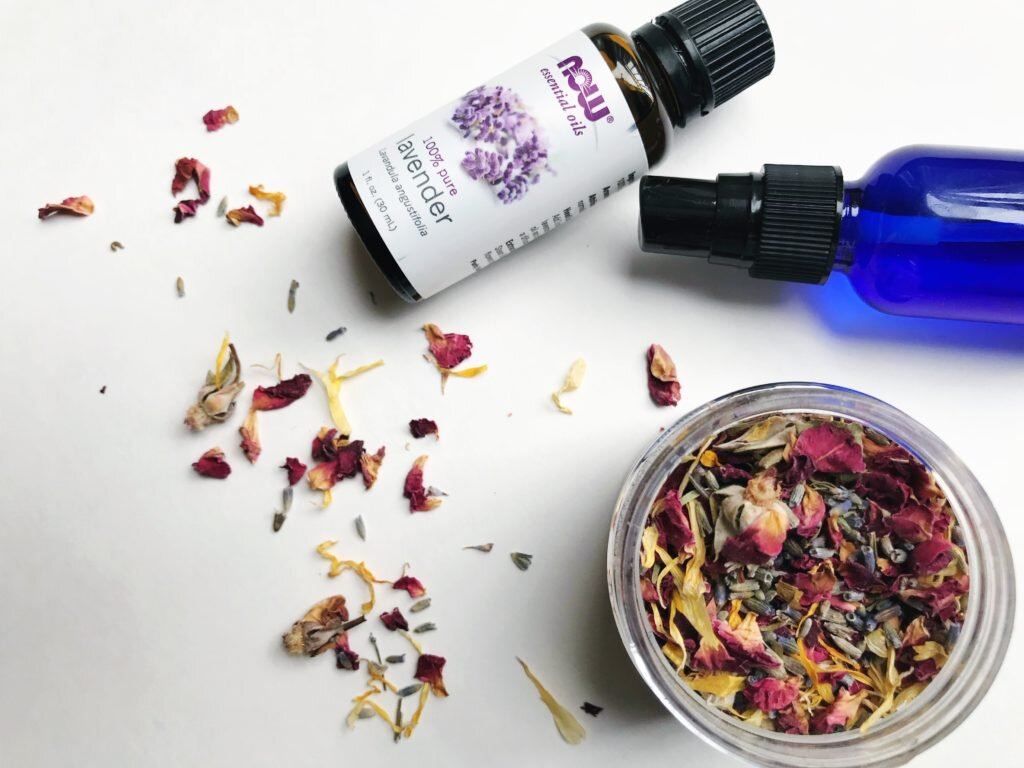How To: Naturally Reduce Anxiety
WORK, SOCIAL LIFE, FAMILY, GLOBAL WARMING – THERE IS PLENTY IN OUR DAY-TO-DAY LIFE THAT COULD PROVOKE ANXIETY.
Feeling anxiety – the natural fight or flight response – is something that everyone experiences at one time or another. While this response in our body can do us some good in short-term situations, long-term, chronic anxiety can wreak havoc on our bodies, and contribute to our risk of physical and mental health ailments. It is reported that 40 million adults suffer from anxiety disorders – from generalized anxiety disorder and phobias to post-traumatic stress disorder (PTSD) and panic disorder (1). Often anxiety disorders can be misdiagnosed as migraines or irritable bowel syndrome (IBS), so understanding the symptoms of anxiety can be helpful in managing it when it arises and seeking help when needed.
CAN MENTAL HEALTH AFFECT YOUR PHYSICAL HEALTH?
Long-term anxiety experienced with anxiety disorders can affect your physical health and place you at higher risk for chronic diseases and serious medical complications. Physiological responses to anxiety include increased heart rate and breathing rate, muscle tension, increased blood flow to the brain, and a decreased immune response to bacteria and viruses (2). All of these responses from the hormones that are triggered during the “fight or flight” feelings can make you feel light-headed, nauseous, and cause gastrointestinal upset (2). Even more seriously, in the Women’s Health Initiative, it was found that participants with a history of full-scale panic attacks had three times the risk of having a heart attack or stroke than participants with lower anxiety and stress levels (1).
Needless to say, managing anxiety can be imperative to overall health and wellness. There are medicinal methods to reduce symptoms and effects of anxiety, but there are also completely natural remedies that you can easily use at home!
TRY THESE NATURAL REMEDIES FOR ANXIETY!
NUTRITION//:
A nutrient-rich, balanced diet supports better mental health and considering vitamin and mineral imbalances can improve symptoms of anxiety. A randomized control study in the Brain, Behavior, and Immunity Journal suggests that the omega-3 fatty acids in salmon and walnuts may reduce anxiety (3). Other nutrients and foods suggested to improve anxiety levels include:
Magnesium
Zinc
B-vitamins
Probiotics
Antioxidants
Turmeric
Ginger
Nutritional treatment for anxiety is not an end-all cure, but practicing a healthy diet can contribute to a lower risk for health conditions that could impact anxiety levels, as well as the physical effects of anxiety.
GET AROMATIC//:
Certain fragrances have been shown to work as “emotional anti-inflammatory” aromatherapy. Lavender, chamomile, and jasmine have been shown to reduce symptoms of anxiety in individuals with generalized anxiety disorder and as a relaxing agent during situational anxiety (4).
Using lavender oil, make a light spray that can be used in any room, or spritzed on your pillow at night to create a calming environment, or use aromatic bath salts or botanical steams (like this one from Franklin & Whitman with rose petals and lavender buds) to surround yourself in a calming scent.
EXERCISE //:
Getting active is a great way to reduce anxiety immediately and it can even affect long-term anxiety (4). Even short bouts of light or moderate exercise can increase levels of serotonin, a neurotransmitter that is associated with improving depression. Regularly exercising can also reduce the risk of other chronic health conditions that could add to the anxiety felt day-to-day, increase self-esteem, and improve your mental health overall.
Try getting out for a short run, getting into a yoga class, or just walking around the block for at least 20 minutes when anxiety hits to dissipate it right away!
HERBAL REMEDIES//:
Adaptogens, teas, and other supplements can be helpful in reducing anxiety with regular use. Some of the herbs mentioned to have aromatic benefits can also reduce anxiety when consumed such as in a tea. My favorite is Honey Lavender Stress Relief Tea by Yogi, which combines multiple stress and anxiety reducing herbs such as chamomile, lemon, balm, lemongrass, and lavender.
Regular green tea, which contains L-theanine has been shown to reduce blood pressure and heart rate (4). In a study from the Journal of Functional Foods, “anxiety-prone” participants were calmer and more focus after taking 200 mg of L-theanine (5).
Adaptogens, which are quickly taking the natural nutrition world by storm, can offer incredible benefits when used regularly. For example, ashwagandha has been shown to reduce inflammation and improve neurological disorders (6). Looking to get into these herbal remedies? Try the Lunar+Bliss blend from By. Erika Elizabeth – it contains ashwagandha, shatavari, and rose petals having calming, stress-reducing, hormone balancing benefits.
Most importantly – it is NORMAL to feel small amounts of anxiety in our lives, but if it is interfering with your life and affecting your help, it is OKAY to seek help! Mental health is key to overall health and wellness and mental health concerns are no less important than physical and medical health concerns. End the stigma, support mental health!
xx,
mallory


